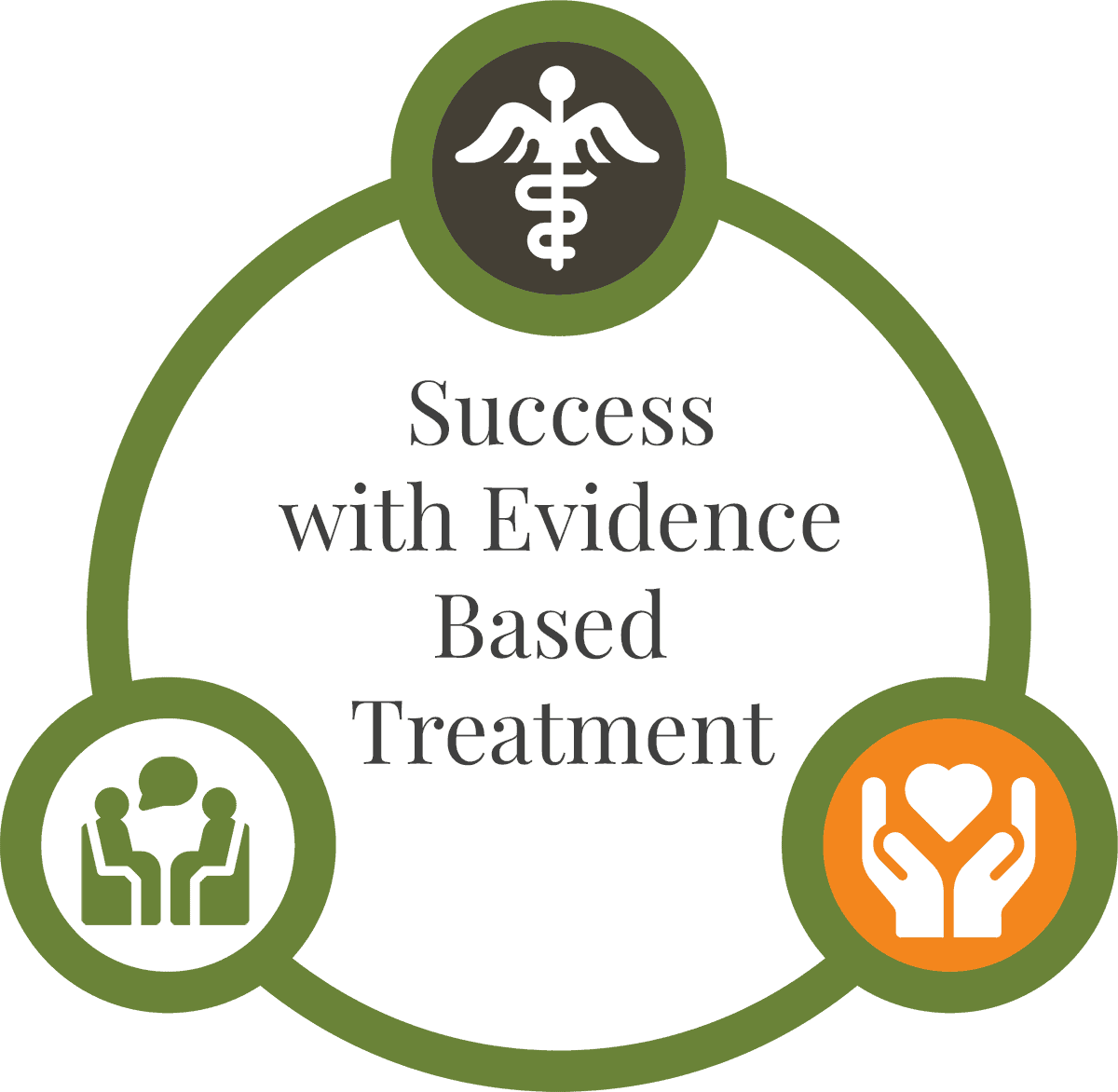Fentanyl Rehab in North Carolina
Discover Recovery from Fentanyl Addiction at Solas Health
Fentanyl is one of the newest and most dire threats that the US is facing, with regards to addictive substances. Fentanyl is a synthetic opioid that’s most well-known for its incredibly high potency, being up to fifty times stronger than heroin. This extreme potency is what makes the drug so effective at relieving severe pain, but it's also what gives it such a sky-high potential for abuse and addiction. The potential for abuse as well as the far higher likelihood of an overdose situation has also resulted in a significant public health crisis.
It is important to seek help for fentanyl use immediately as the risk is so high. The overdose epidemic is driven by the prevalence of illegal counterfeit versions of fentanyl or their cheaper substitutes nitazines. On top of the rampant risk of overdose that fentanyl and these related synthetic opioids pose, they are often "cut" with the veterinary anesthetic xylazine, which can cause necrotic skin ulcerations.
Medication Assisted Treatment (MAT) and Compassionate Support
We have found that our patients who take advantage of medication-assisted treatment and also pursue counseling, 12-step (or non 12-step) support groups, and pursue a spiritual approach to recovery are able to move towards a happy and fulfilling life.
Suboxone, Subutex, and Sublocade are the most popular brand names for medications that include the drug buprenorphine. Buprenorphine has a molecular structure that’s similar to opioids, but the mild effects of buprenorphine don’t cause you to get “high.” It lessens withdrawal symptoms such as nausea and vomiting, muscle aches, and anxiety.
We have over a decade of experience in administering medication-assisted treatments for opioid use disorders (OUD) using buprenorphine. We have seen outstanding results with a very high percentage of success. In fact, evidence-based medicine has shown that this particular treatment can produce positive results in up to 92% of patients, which is consistent with our experience. Hope and freedom from addiction to opiates can be a reality.

Our Approach to Treating Fentanyl Addiction
At Solas Health, our approach to the formidable challenge faced by those struggling with fentanyl addiction is based in a clear understanding of the unique nature of the substance itself, as well as its effects on the body, and the brain. We make safe, effective, and personalized care plans our top priority, ensuring that our teams address both the psychological and physical aspects of addiction. With a team that includes physicians, counselors, and support staff, we specialize in helping determined individuals reach and maintain sobriety.
We’re so uniquely qualified to provide this care because we understand that overcoming a fentanyl addiction requires more than just addressing the physical dependence, it requires a deep, well-crafted holistic approach that takes into account not only the physical but the emotional, psychological, and even social factors that impact addiction and sobriety. Our treatment programs are specifically curated to provide the essential support and critical tools that are needed to maintain long-term recovery.
We are here to help individuals struggling with fentanyl addiction, so they can start their journey toward a healthier, drug-free life. Our commitment to quality care, combined with our expertise in addiction treatment makes Solas one of the most trusted choices for anyone seeking professional help breaking a fentanyl addiction.
A Closer Look at What Fentanyl is and Why Addiction is So Common
Fentanyl is a synthetic opioid that is far more potent than almost any other opioid, making it one of the most effective medications for managing extreme pain that typically cannot be managed in other ways. However, this also makes it very dangerous and highly addictive. Having a clear understanding of fentanyl and fentanyl addiction is important for anyone looking to begin effective treatment since it creates unique challenges due to the potency and rapid addiction formation.
Why Does Fentanyl Even Exist?
Fentanyl is typically used to medically treat severe pain that cannot be managed in other ways, commonly in cancer patients or following extensive surgeries.
That said, its extremely high potency means that the smallest amount can lead to potential overdose situations and even death. The ability of fentanyl to bind more tightly to opioid receptors in the brain than other opioids is one of the reasons why it’s considered so much more potent and why the risk of addiction is so great.
The Path to Addiction
You know by now that a fentanyl addiction can grow incredibly fast, sometimes after only a few small uses, due to the intense euphoria and the rapid tolerance development. Many users find themselves needing larger and larger doses to achieve the same effect, which is the start of a dangerous and potentially deadly cycle of growing dependency and abuse.
The addiction is far from being a purely physical affliction, and it will take a heavy toll on the psychology of the individuals using it, leading to intense cravings for the drug’s effects, and users finding it nearly impossible to cope with daily life without it.
Fentanyl’s Impact on Individuals and Communities
Fentanyl addiction has devastating effects, not only on the individuals using it but on the families and communities they are part of. The impacts can eventually mean financial instability, job loss, broken relationships, and significant impacts on health up to and including the constant risk of overdose and death.
Additionally, the potency of the drug and the relative ease with which it can be cut into other drugs or mixed with other substances only serves to increase its danger. The essence of understanding fentanyl addiction means recognizing how complex the issue is, and how biological, psychological, and social factors can have a substantial contribution toward the development and continuance of the addiction. Overall, it’s a disorder that needs comprehensive treatment strategies that take into account the unique attributes of the drug.
Integrated Care: The 'Whole Patient' Approach

- Physician Services
Evidence-based practices, including screenings, personalized recovery plan and FDA approved medications such as Suboxone, Subutex, Sublocade, and Vivitrol - Counseling
Individual and/or group sessions to help patients stick to their recovery plans - Recovery Support Services
A case manager can help patients identify resources for employment, housing, healthcare, education, recovery skill-building and more
Solas Health’s integrated care approach is based on the American Society of Addiction Medicine (ASAM) treatment guidelines, which have been proven most effective in treating the abuse of opioids (like fentanyl and heroin), and other substances.
Indications & Symptoms of a Fentanyl Addiction
Just like other opioids, fentanyl addiction will manifest with a slew of various physical, psychological, and behavioral signs. Being able to recognize these signs will be crucial for providing early intervention and effective treatment at a stage when both are likely to be more effective.
Physical Symptoms
- Increased tolerance: A growing tolerance means the user will require larger and larger doses to feel the same high.
- Withdrawal symptoms: Typically, once addicted, not using the drug will create symptoms like nausea, sweating, aches, tremors, and emotional instability.
- Changes in sleep patterns: Using fentanyl will often cause excessive sleeping, while abstinence once addicted will usually cause insomnia.
- Weight loss: Losing weight as a result of decreased appetite or personal neglect is common.
- Respiratory distress: Respiratory depression is common with opioids, and it can be particularly dangerous with fentanyl due to its more potent effects.
Psychological Symptoms
- Mood swings: Rapid or extreme changes in mood are common.
- Anxiety and depression: Feelings of anxiety or depression are common when not using the drug.
- Impaired decision-making: Poor decision-making, or making choices that are typically out of character and that come with negative consequences is common.
Behavioral Symptoms
- Compulsive drug-seeking behavior: Fentanyl users will often go to great lengths to find and obtain it, including using multiple doctors, crime, or other risky behavior.
- Neglect of responsibilities: Suddenly failing in school or neglecting work or family obligations can be an indicator of fentanyl use.
- Social withdrawal: Abandoning hobbies or other activities once loved, or self-isolating, are strong indicators of use.
- Financial problems: Spending excessive money on the drug, often leading to money problems or growing debt, can also be a sign.
Treatment Options for Fentanyl Addiction
The most effective treatments for fentanyl addiction require a multidisciplinary approach that is crafted to address the intense physical and psychological aspects of addiction and recovery. Below are some of the treatment options that may be part of your individualized treatment plan.
Fentanyl Detoxification
For anyone hoping to find successful long-term recovery from a fentanyl addiction, detoxing will be an absolute must. This step is safely and systematically withdrawing from fentanyl under medical supervision.
The supervised withdrawal process helps manage both the acute withdrawal symptoms, which are largely physical and helps prepare the individual for continued treatment. With the potency of fentanyl, the supervision also helps keep the individual safe from potential medical complications.
Medication-Assisted Treatment
Medication-assisted treatment, or MAT, is one of the longstanding cornerstones of opioid addiction treatment, and fentanyl treatment is no different. MAT uses medications like methadone, suboxone, and others to manage cravings and treat withdrawal symptoms more effectively.
These medications generally work by stopping the individual from getting the same high from fentanyl, since they bind to the receptors in its place, blocking it out.
Counseling and Behavioral Therapies
Since the underlying causes of so many addiction battles deal with emotional or psychological issues, receiving counseling and behavioral therapy can help those in recovery to develop and strengthen coping strategies. These strategies help them deal with triggers and cravings more effectively so they can rebuild their skills for a healthy life.
Some of the most common therapies include cognitive-behavioral therapy, also known as CBT, motivational interviewing, and group therapy sessions. The group sessions have a particularly significant value in that they help individuals get support and encouragement throughout the recovery process.
Long-Term Recovery and Relapse Prevention
Recovering from an addiction to fentanyl is a lifelong process. Many people believe that the initial treatment is all that’s needed, but the truth is that recovery will be long-term and will take constant work. At Solas Health we put a heavy emphasis on continued support and ongoing relapse prevention strategies. This encompasses long-term counseling, participation in support groups, and of course, regular check-ins and follow-ups with your care team.
Challenges & Considerations Related to Fentanyl Addiction Treatment
Due to the high potency and severe withdrawal symptoms associated with fentanyl, the recovery process presents some unique challenges. Being aware of these challenges can help develop more effective treatment strategies while also supporting long-term recovery.
High Potency and Overdose Risk
As we’ve mentioned, fentanyl is one of the most potent opioids and is more than 50x as potent as typical heroin on the street. This means that there is an incredibly high risk of overdose, even for small amounts, and the margins for dosage errors are razor-thin.
This massive store of potency means that a supervised and carefully monitored approach is critical, particularly for the detoxification stage, where there is the greatest possibility for medical complications.
The high potency also means that the withdrawal symptoms will be especially severe, both in the acute stage and the post-acute stage. Additionally, if the patient were to relapse, the loss of tolerance and the high potency can lead to deadly outcomes.
Tailored Treatment Approaches
Just as each addiction is unique, no two people respond to fentanyl addiction treatment in the same way either, so for any treatment to be effective it needs to be tailored to the individual.
It needs to be personalized, accounting for the individual’s addiction history, pre-existing or co-occurring disorders, physical health, and more. This ensures that the treatment given is the optimal treatment for the individual, not just what’s convenient.
Overcoming Barriers to Treatment
Many individuals who are struggling with fentanyl addiction also face considerable barriers to accessing or entering treatment. These can include the stigma of addiction, fear of withdrawal and detox, limitations on financial resources, or simply the lack of sufficient support.
Addressing these barriers and helping the individual overcome them can be crucial for creating an environment conducive to long-term recovery success. Solas Health works diligently to help overcome these obstacles by creating a non-judgmental environment with significant support, helping to encourage treatment engagement while also boosting retention. We do this by offering financial counseling, as well as ensuring access to comprehensive care
Addressing Co-occurring Disorders
In a great many situations, someone struggling with a fentanyl addiction will also be struggling with one or more co-occurring mental health issues. Common co-occurring disorders include anxiety, depression, and post-traumatic stress disorder.
Treating co-occurring conditions like these needs to be done simultaneously with the addiction treatment for either to be successful, and our team of compassionate experts is well-versed in dual diagnosis treatment.
The Critical Role of Support Systems in Fentanyl Recovery
- Family & Friends: Friends and family are indispensable during the recovery process, and the importance of their support cannot be overstated. They can help provide a sense of stability and true belonging during a turbulent time.
- Community Resources: Assorted community resources, like support groups, peer recovery programs, and larger addiction recovery organizations can provide additional layers of support by helping those in recovery connect to others in the same boat.
- Professional Support: Professional support in long-term recovery looks like regular follow-ups with your doctors and care team, ongoing participation in therapy, and staying engaged with addiction recovery programs.
Partner with Solas Health for Leading Fentanyl Addiction Treatment
When you partner with Solas Health for fentanyl addiction, you’re choosing to partner with an organization dedicated to providing compassionate, comprehensive, and most importantly, effective health care. Our unique multidisciplinary and holistic approach to opioid use disorder sets us apart from other treatment facilities, while also making us a trusted source for individuals looking for help in recovering from their fentanyl addiction.
If you or someone you care about is struggling with fentanyl addiction, Solas Health is here to help, and our team of experts and specialists is standing by to provide the treatment and support you need for a successful long-term recovery. Reach out to Solas Health today, and take your first step toward a healthier and fentanyl-free future.
We Serve all of North Carolina - via Telehealth
Dr. Corrigan and his staff encourage residents in the North Carolina communities of Pinehurst and Cary who suffer from drug addiction to contact Solas Health for evaluation and consideration for entry into a confidential and compassionate outpatient treatment program.
If you live in North Carolina, we can help. We accept all forms of insurance (including North Carolina Medicaid and Medicare) and our fees are designed so anyone can receive treatment. We are able to see you and provide remote/telehealth care to those who do not have access to our centers. Call 910-295-7246 to get started (or fill out the form below to hear back from us).
Our centers are located in:
Don't live in pain anymore when we can help. After you work with our doctors and get the benefit of their counseling and pain management backgrounds, you will be moving toward a life free from addiction, pain, and debilitating mental health disorders.
After your first appointment, you will be moving in the right direction with expert clinical support and a treatment plan to follow. It’s simple to get started, call us at 910-295-7246.



